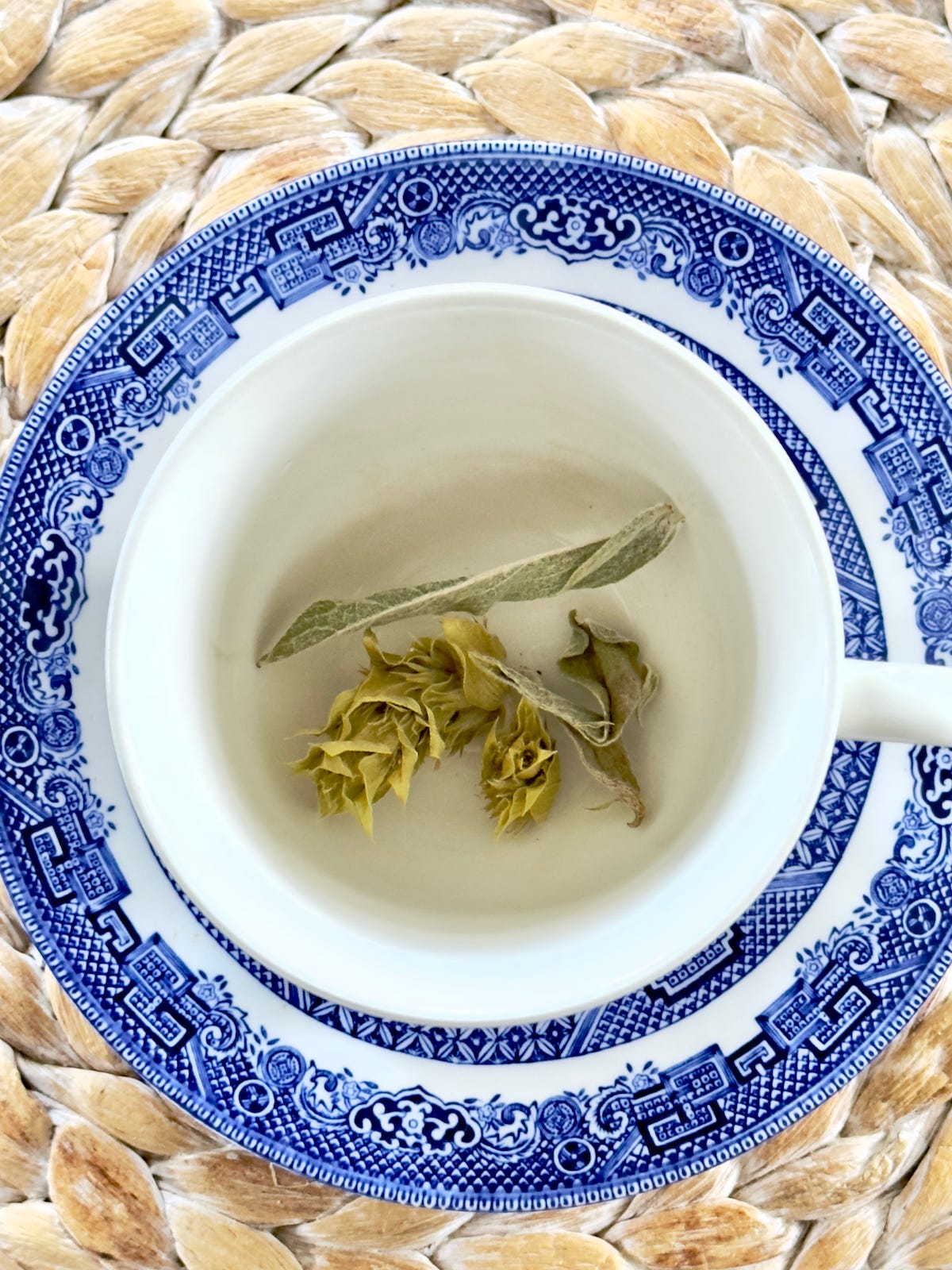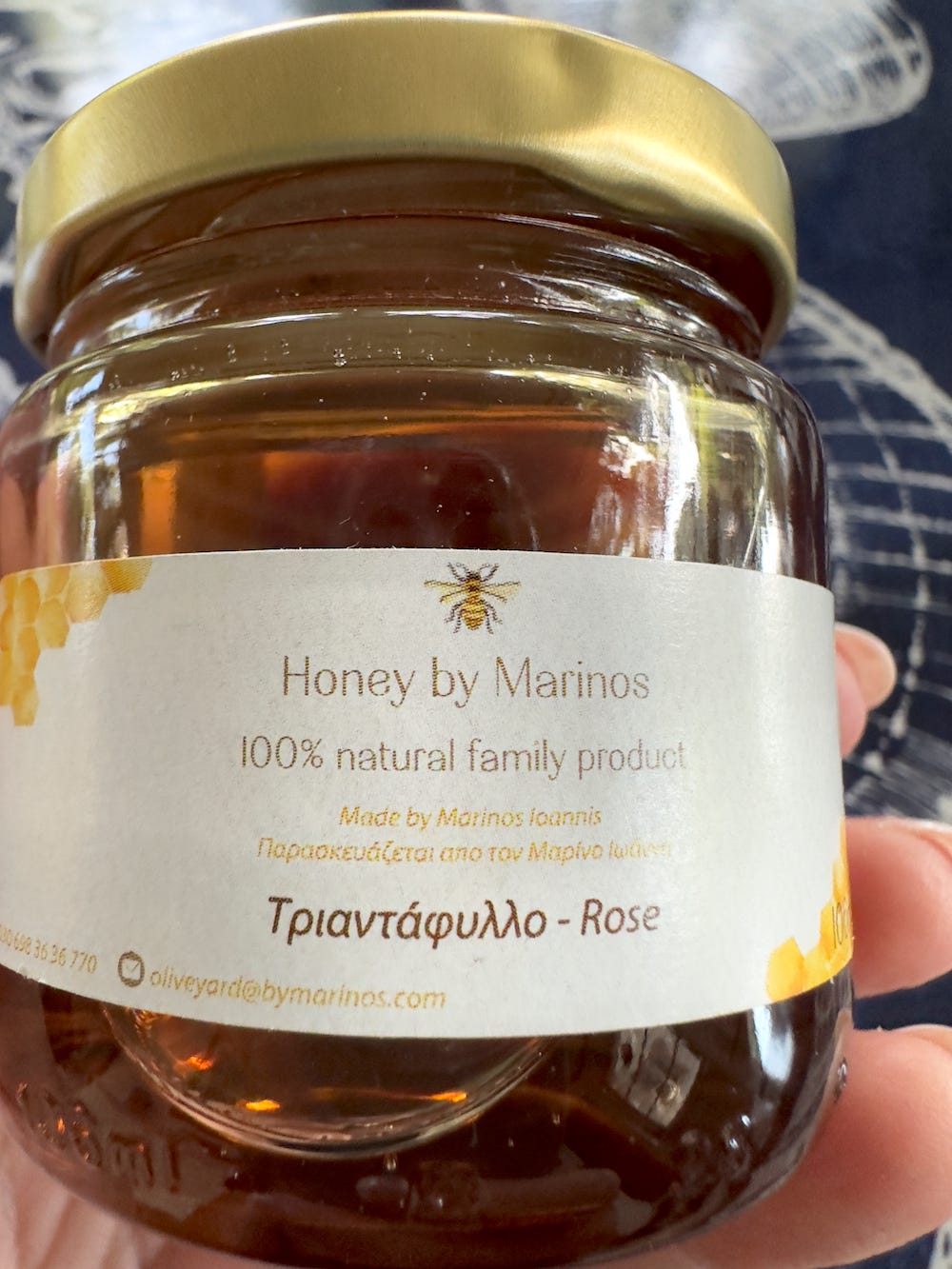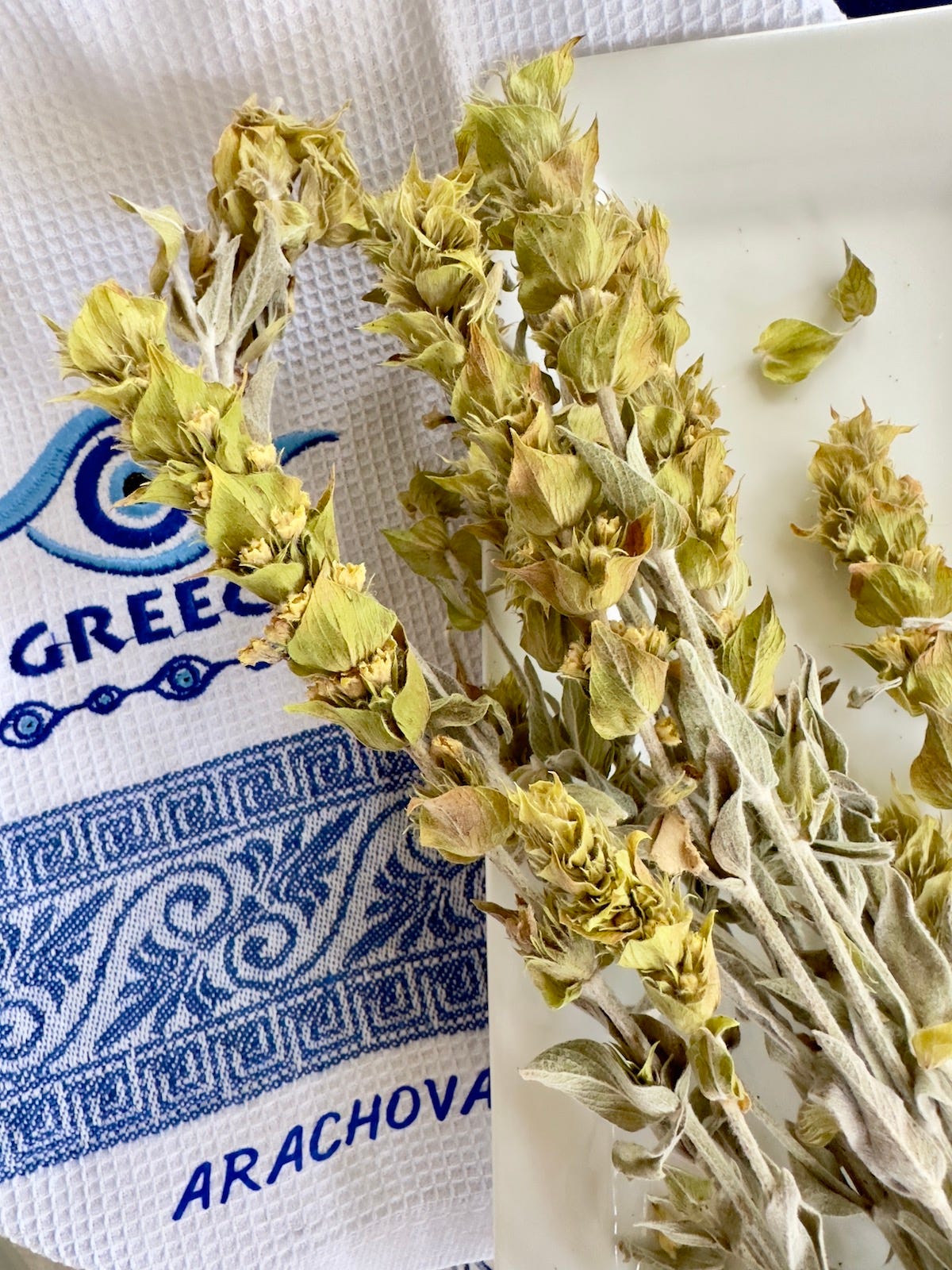Greek Mountain Tea, An Herbal Medicine with Many Benefits
What is this Greek Mountain Tea? The popular herbal tea from the mountains of Greece has been known for its medicinal benefits since ancient times.
Today, I’m taking your tea journey to Greece. Last summer, my daughters and I had the opportunity to travel to Greece, a land steeped in ancient history and natural beauty. Our journey led us to explore the picturesque villages of Delphi and Arachova, nestled in the rugged mountain cliffs of the Peloponnese region, where I discovered Greek Mountain Tea.
As impressive as the archaeological sites in Athens were, they were not the only Ancient Greek wonders. Delphi was once thought to be the center of the world. The Oracle of Delphi was a priestess who sat in the center of the Apollo Temple and gave ancient Greek leaders advice and prophecy. It’s a highly spiritual place with amazing energy. For the Greeks, divinity was closely connected to nature.
After exploring the Tholos of Delphi and the Temple of Apollo, we visited Arachova. Arachova is a popular ski resort at 3,000 feet elevation on the southern slope of Mount Parnassus.
During our visit to Arachova, I made a delightful discovery—Greek Mountain Tea, a valuable medicinal plant used for centuries. The village shops had many gourmet food products produced by the local people, and we tasted famous Greek honey, olive oil, and mountain tea. It was like a candy store of natural delights!
What is Greek Mountain Tea?
Greece has dozens of endemic plants with significant medicinal properties and aromatic qualities.
As we explored the town of Arachova, a friendly elderly Greek shop owner introduced me to Greek Mountain Tea, known locally as “tsai tou vounou” (mountain tea). The botanical name is Sideritis scardica. The shop was abundant with local harvests, including many delicious jars of honey. We tasted the most delightful thyme, pine, and lavender honey.
Ancient Greeks have been using mountain tea for centuries, and it holds a special place in their culture and traditions. Greeks believe in its numerous health benefits and often serve it as an herbal remedy for various ailments. The tea is made from the Sideritis plant's dried flowers, leaves, and stems, native to the high elevations of the Greek mountains.
In Greek, “Sideritis” is translated as “he who is made of iron.” The Greek word for iron is “sidero” in English. The Sideritis genus, also known as ironwort or shepherd’s tea, is native to the rocky terrain of Greece’s mountains.
There are three species: Sideritis lanata (hairy ironwort), Sideritis montana (mountain ironwort), and Sideritis romana (simplebeak ironwort). Many Sideritis cultivars grow in the Mediterranean, Iberian Peninsula, and Balkans. (source)
Sideritis scardica
Sideritis purpurea Talb. - found in western Greece, the Ionian islands and Crete
Sideritis remota Urv.
Sideritis scardica Gris. - also known as Olympus tea
Sideritis theezans Boiss & Heldr - found in Peloponnese
Sideritis raiseri Boiss & Heldr
Sideritis euboea Heldr - found on the island of Euboea
Sideritis syriaca L., Sideritis cretica Boiss, Sideritis boissieri Magn. - found in Crete and collectively known as Malotira
What does Greek Mountain Tea taste like?
Good mountain tea is handcrafted and harvested from the mountains of Greece. The soothing flavors are a harmonious fusion of earthy sage and zesty citrus notes, creating an exceptional herbal tea. Some varietals have little hairlike fuzz on the stems and silvery leaves.
The many health benefits of Greek Mountain Tea
I did a little research to find out more about this famous tea. I discovered that Greek Mountain tea has been used as a remedy by the Greeks for thousands of years to alleviate common cold symptoms, soothe sore throats, and relieve gastrointestinal disorders.
It is also considered an excellent anti-inflammatory agent with high levels of antioxidants. Locals believe the medicinal properties of regular tea drinking can boost the immune system, improve digestion, and promote overall well-being. (source)
By establishing the connection between body, soul, and environment, ancient Greek philosophy and medicine laid the foundations for modern healthcare concepts. Scientists have proven that a Greek Mountain Tea infusion acts as a tonic without causing restlessness, helps digestion, softens a cough, and does marvelous things against colds. (source)
Scientific studies support these healing properties:
Greek Mountain Tea is a naturally caffeine-free herbal infusion.
It supports digestion and reduces inflammation of the gastrointestinal tract. (source)
Boosts immunity and overall health. (source)
It may lower blood pressure by relaxing blood vessels. (source)
Reduces anxiety. (source)
Improves sleep quality due to its calming effect. (source)
The tiny yellow flowers of the Sideritis plant contain large amounts of essential oils and polyphenols. The intense, heady aroma of freshly-cut mountain tea is said to evoke a sense of euphoria.
Wild bees dive deep into the yellow blossoms to suck their stimulating nectar. Beekeeping and honey cultivation are practices from ancient Greece that thrive in modern Greece today. The Greek philosopher Hippocrates, the father of modern medicine, recommended honey to all his patients.
As reported in Planta Medica, science supports the ancient claims that the ironwort (Greek Tea) oils prevent osteoporosis and improve digestion. Its antioxidant properties may aid in preventing cancer. (source)
During our short stay in Greece, I developed a fondness for Greek mountain tea. Enjoying this traditional beverage and the breathtaking landscapes was genuinely unforgettable. Greek mountain tea is a delightful refreshment and a cherished connection to Greece’s rich cultural heritage and its people’s wisdom.
You can add honey or not. I especially like to add Greek honey that I purchase from Klio. After all, I can’t just hop on a plane to Greece every time I need more honey!
I wrote about what makes Greek honey so special here:
The Sweet Secrets of Greek Honey
Or I can meet up with a new acquaintance I recently met through
from Writers at Work on Substack. Coincidentally, , who writes The Pebble in Your Shoe, and I live in the same town. She kindly gifted me authentic Greek rose honey from her latest trip.






